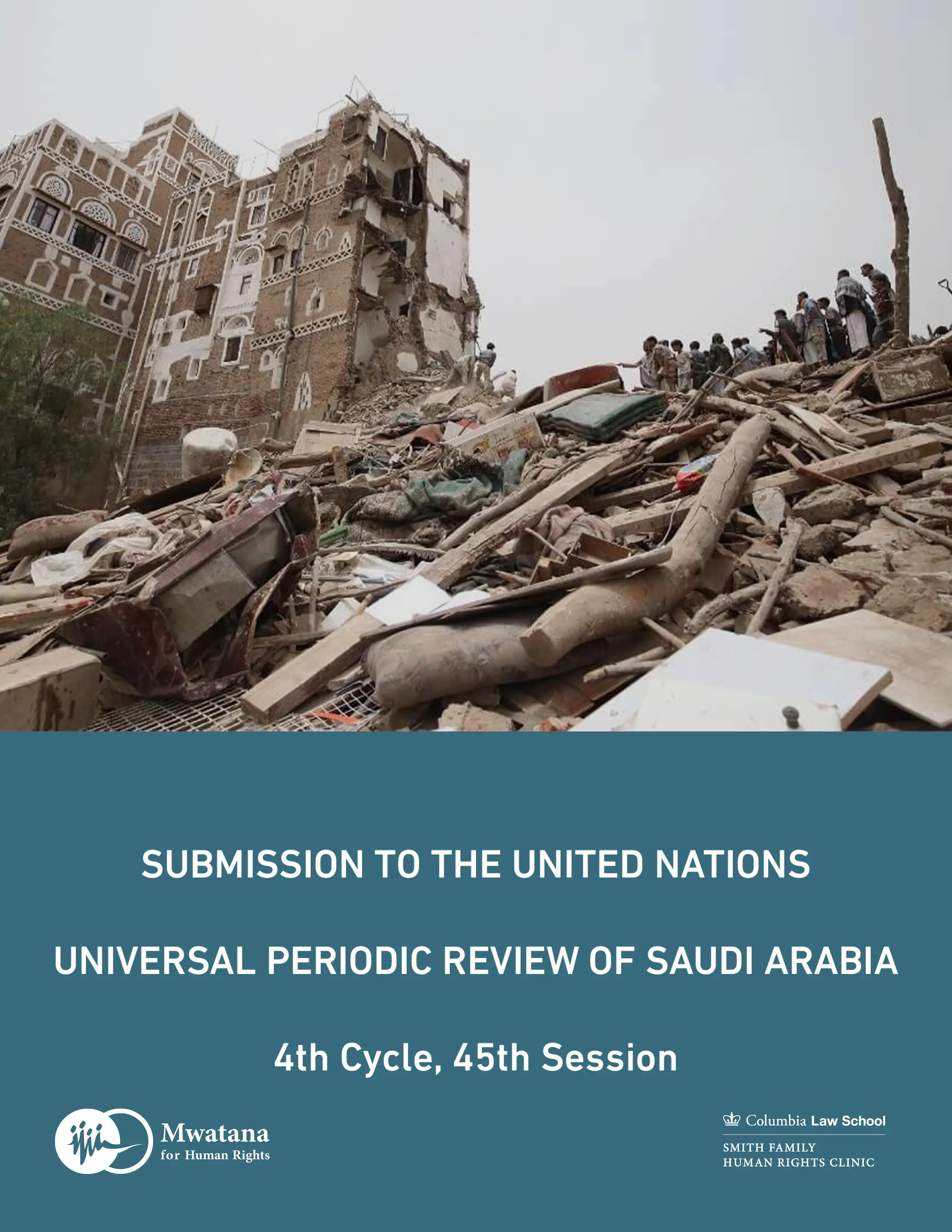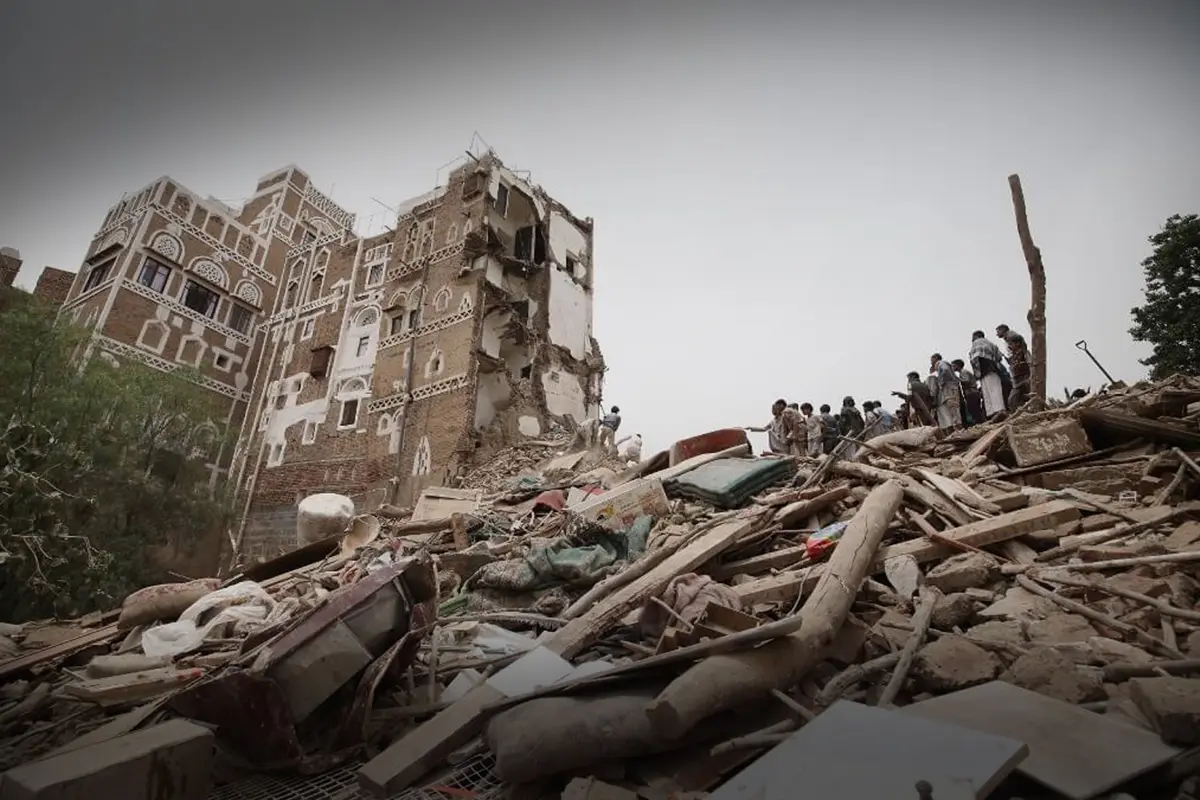Summary:
Mwatana Organization for Human Rights (Mwatana) and the Columbia Law School Smith Family Human Rights Clinic (Clinic) jointly submit this report to inform the examination of Saudi Arabia during its Universal Periodic Review.
In March 2015, Saudi Arabia, together with the United Arab Emirates (UAE), led a military coalition of States to intervene in the armed conflict in Yemen on behalf of Yemen’s internationally-recognized government under President Hadi. Nearly nine years after the beginning of the conflict in September 2014, Yemen is the world’s worst humanitarian crisis, and the UN estimates that the war has claimed over 377,000 lives. While the truce that began on 2 April 2022 and formally ended 2 October 2022 has led to the continuing de-escalation of hostilities and progress toward peace, violence continued during the majority of this cycle’s reporting period. Much of this violence and related human rights abuses can be attributed to Saudi Arabia. Throughout the conflict, the Saudi/UAE-led coalition carried out operations resulting in a widespread and systematic pattern of serious IHL and gross IHRL violations. These violations include, but are not limited to, indiscriminate and disproportionate airstrikes resulting in civilian casualties and the destruction of civilian objects, restriction of essential humanitarian aid, starvation as a method of warfare, arbitrary detentions, and attacks on migrants. Over the course of the conflict, Saudi Arabia and its coalition partners have actively worked to thwart accountability, while failing to hold perpetrators accountable for their actions, take steps to prevent future harm, and provide those harmed with remedy and reparations.


